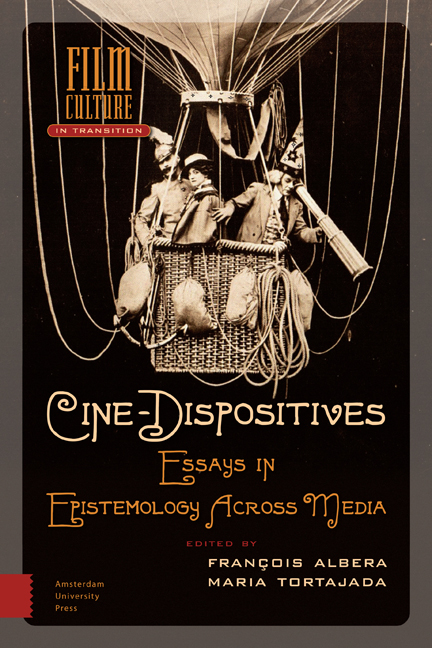The “Dispositive Effect” in Film Narrative
Published online by Cambridge University Press: 10 February 2021
Summary
Like the idea of structure, the notion of the “dispositif” does not pertain to a single level of analysis: it applies to specific objects, such as the mechanism of a watch, but also to large ensembles, as in Foucault's work, where it came to substitute for the episteme in the late 1970s. By contrast to the episteme, focused too narrowly on the utterances produced by a society, Foucault's dispositif refers more widely to the totality of discourses, social practices, technical inventions, architectural creations instituting, at a given time, the partition between the true and the false in the domain of knowledge, the legitimate and the illegitimate in the sphere of power. There now seems to be general agreement on the term “arrangement,” used liberally to describe “dispositifs,” insofar as it conveys both their constitutive heterogeneity and their power of organization. For Bernard Vouilloux, for instance, a “dispositif” is an “arrangement that actualizes and integrates elements with an objective in sight,” which may apply to an administrative measure, a military strategy, or a pedagogical practice; but also in a very different context, as far as Foucault's model is concerned, since the heterogeneous factors instituting knowledges and powers (this would be the arrangement) are shot through by individual or collective, conscious or unconscious strategies leading to the promotion of enunciable discourses and legitimized powers.
When, as part of more limited “dispositifs,” a technical arrangement – or any reality endowed with the same function – regulates relations between subjects, two other dimensions come into play: a pragmatic dimension, obvious in the case of communication tools since they mediate our exchanges, but also a symbolic dimension, in the current sense of “values,” for a “dispositif” would hold no meaning or legitimacy without the semantic and axiological values pervading it. The movie theater considered as a media pragmatically regulates the relation of filmmakers to their audience and serves as a vehicle for “some” symbolic content insofar as a film generally produces a direct or indirect discourse on the world: if it did not, the public would likely spurn it sooner than later.
- Type
- Chapter
- Information
- Cine-DispositivesEssays in Epistemology Across Media, pp. 195 - 214Publisher: Amsterdam University PressPrint publication year: 2015

